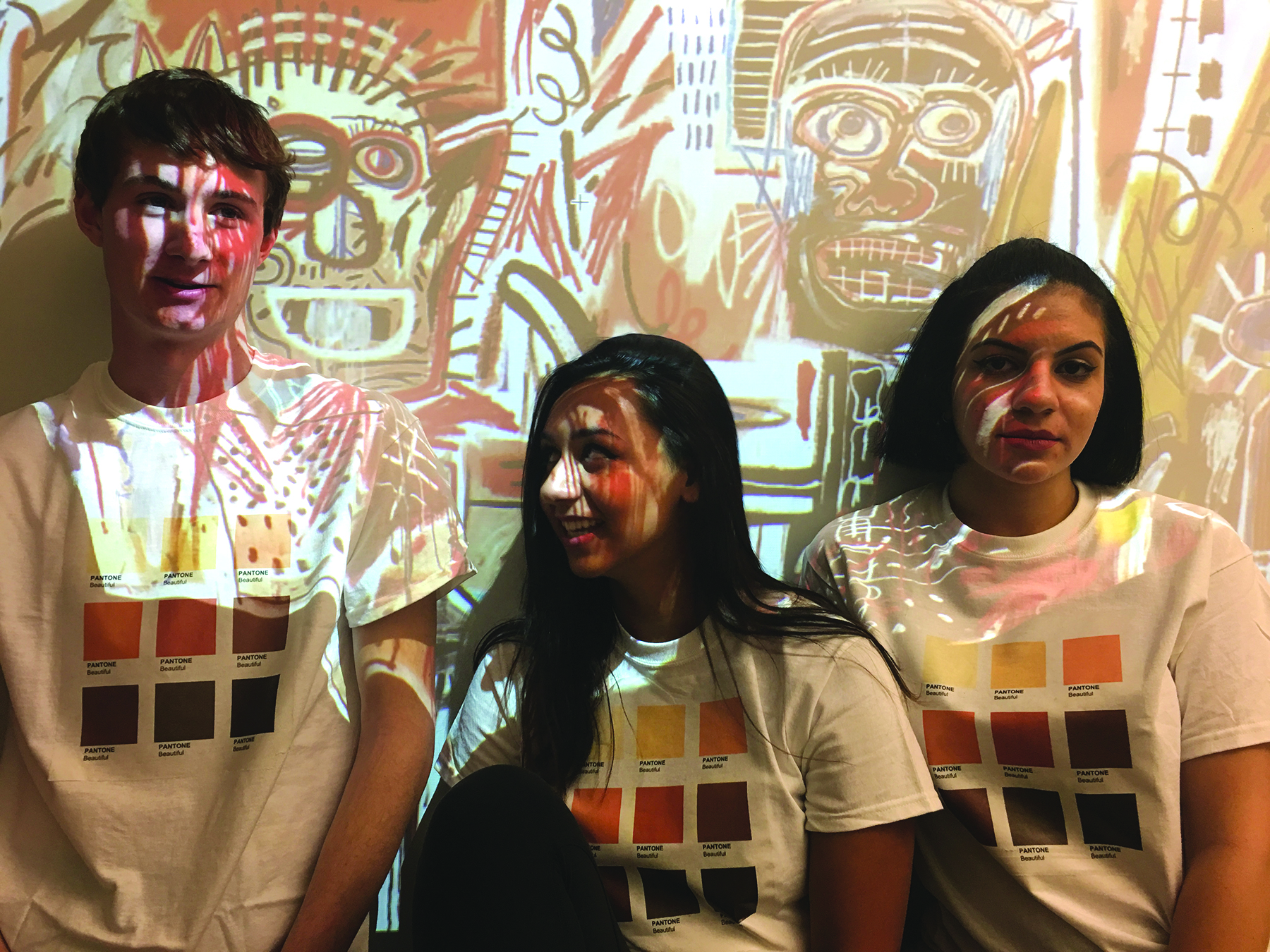A group of Natick High School (NHS) students have boldly taken on roles as leaders in their school and community through InterFem (short for intersectional feminism), which advocates for equal representation and diversity in tangible ways. In just a little over a year, InterFem members served homeless women, hosted an inclusive art gallery event and spoke at a public rally and a graduating class.
Youth Speaking Up
InterFem Founder and President Béla Ghosh and group member Titi Scorzailo took a stand after two highly publicized racial hate crimes that rocked the Natick community last fall. They addressed the large crowd that gathered at the Black Lives Matter rally on the Natick Common in November.
“I believed the rally was the perfect opportunity for young people to speak with honesty and expand our voices in Natick,” Ghosh said. The young women spoke of their experiences of feeling “other” in Natick and at NHS, and the importance of supporting diversity every day, not only when there is a public opportunity to do so.
“While Natick may be a fairly progressive town, reactions to racism and intolerance are often limited to immediate affirmations of peace, while failing to address the widespread biases in our community that caused the hate,” Ghosh explained.
Changes at NHS
An inclusive culture was beginning to take shape at NHS before the hate crimes took place. InterFem credits this evolution in part to NHS Principal Brian Harrigan, who has had a positive presence in the school since his arrival in 2015.
“He has become an incredible advocate for minorities at our school, helping us create groups where we feel safe expressing our experiences of school culture, while ensuring that all concerns will be taken seriously by the administration,” Ghosh said.
This is a far cry from what Ghosh experienced during her freshman and sophomore years at the NHS (she is now a senior). There were no clubs for minority students in Natick to connect, leaving her feeling as if any difference, whether racial, religious or otherwise, was unwelcome in the larger community.
When xenophobic graffiti was discovered in an NHS bathroom in November, it was a physical representation of what she and other students outside of the majority had already been feeling.
“The biggest challenge after the hate crimes has been the misconception that the fight against injustice is an ideological debate between opposing political spheres,” Ghosh said.
InterFem’s Mission
InterFem offers “a new vision for social activism,” as their slogan proclaims. The name of their group is short for intersectional feminism, a concept created in 1989 by Kimberlé Crenshaw, a professor of law at UCLA and Columbia.
Crenshaw’s theory states that sexism, racism, classism and other similar institutions are linked, and should be addressed together. Thus, InterFem makes a priority of celebrating the voices of women, people of color and other demographics that are underrepresented.
“The creation of the club felt like a necessity,” Ghosh explained. “As a South Asian woman, the intersection between race and gender in my identity was apparent to me right away, as I felt my racial identity wasn’t entirely represented in most feminist movements.”
InterFem balances discussion and community outreach. During meetings, group members will raise topics of the day, engage each other in productive discourse and plan ways to serve both in and outside of NHS. For instance, the group spent Valentine’s Day, 2016, serving a meal at Rosie’s Place, a women’s shelter in Boston that serves low-income and homeless women.
All Are Welcome
What about NHS students who may be male, white, straight or of other non-minority identities? Ghosh like them to know that they are welcome at InterFem.
“We have many group members that fall into majorities, and they are all integral and essential members of our club, not just allies that listen in,” she said. InterFem has devoted time to topics such as male feminism, whiteness studies and more.
Ghosh noted, “If majority readers are still uncertain or uncomfortable entering a room where they may be the only person of their identity, I would tell them that most people in that room have felt the same way almost every day, and we will surely be able to relate to this feeling!”
To learn more about InterFem, visit interfem.weebly.com.

Issue Date:
February, 2017
Article Body:
